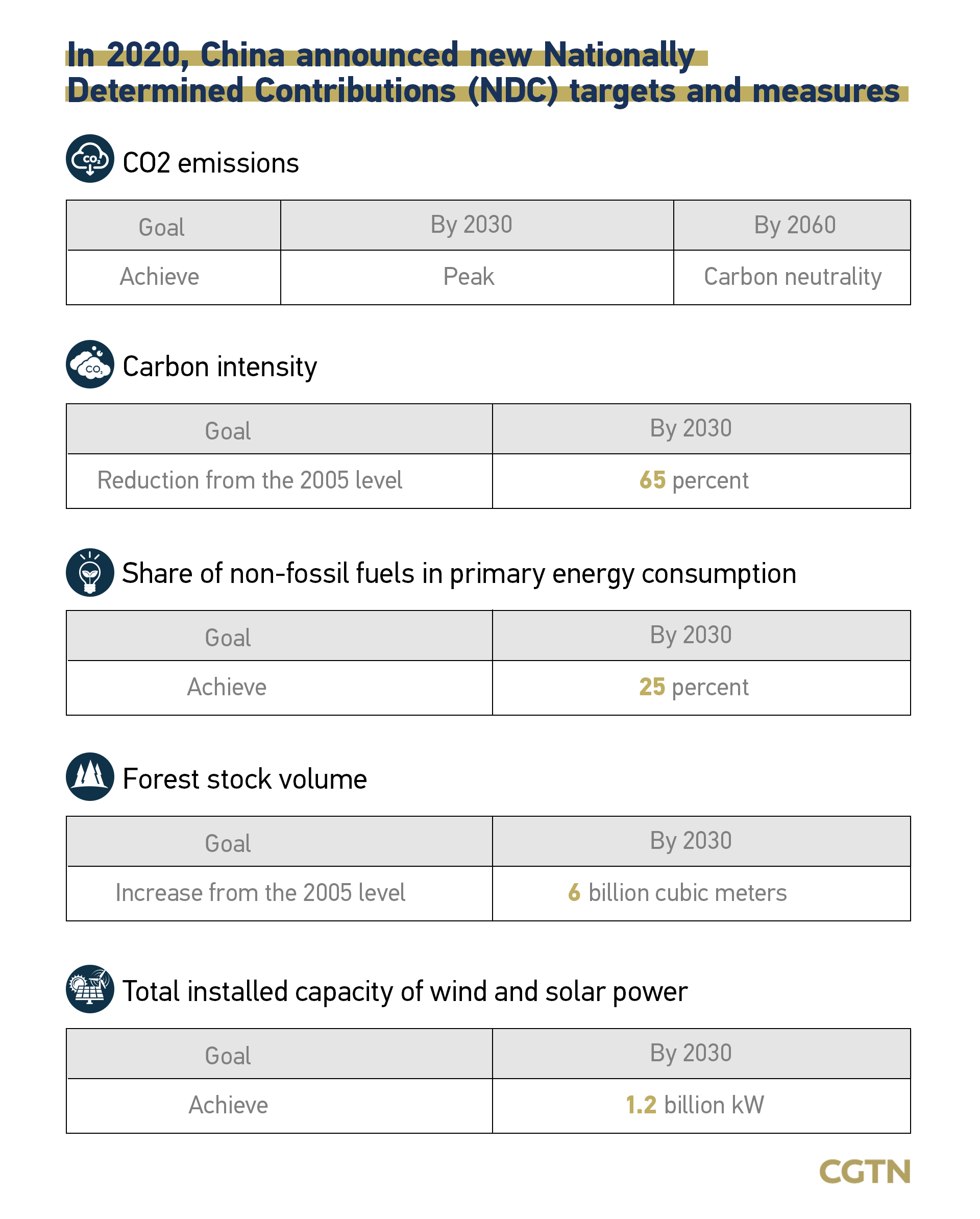China has been delivering on its commitments in addressing climate change, Chinese Foreign Ministry spokesperson Wang Wenbin said on Tuesday, adding that the country has made "arduous efforts" and "remarkable achievements."
Wang made the remarks at a regular press briefing in response to U.S. National Security Advisor Jake Sullivan's accusation. Sullivan on Monday labeled China as a "significant outlier" in the fight against climate change and said that the United States will "keep pressing" on China.
Wang noted that China has set the targets to peak carbon emissions by 2030 and achieve carbon neutrality by 2060. The country's carbon intensity in 2020 was 48.4 percent less than that in 2005, which means that China had more than fulfilled its commitment of achieving a 40-45-percent reduction in carbon intensity from the 2005 level by 2020, he said. The drop in carbon intensity translates to a total reduction of about 5.8 billion tonnes of carbon dioxide emissions, he added.
Meanwhile, China has accelerated the transformation to green and low-carbon energy, with the installed capacity of photovoltaic (PV) power increasing by a factor of more than 3,000 compared with 2005, and wind by a factor of more than 200, he noted.
Read more:
From Paris to Glasgow: China is in action to protect the planet
Graphics: White paper unveils China's progress in mitigating climate change
China's green transition: A feasible way of quitting coal

From carbon emission peaking to carbon neutrality, developed countries generally need a transition period of 40-70 years, whereas China, the world's largest developing country, aims to achieve that within 30 years, he said. China's carbon neutrality target is in line with the target set in the 2015 Paris Agreement to cap global warming at well below 2 degrees Celsius above pre-industrial levels, and 1.5 degrees Celsius if possible, he said.
"It shows China's climate ambition and global leadership in accordance with its development state and national conditions," the spokesperson stressed.
Underscoring developed countries' historical responsibility for climate change, Wang urged them to follow the principle of common but differentiated responsibilities, fulfill their obligations and lead by example on substantial emissions reduction.
He called on the U.S. to announce detailed measures on emission reduction as soon as possible. The U.S. cannot ask China to reduce coal consumption on the one hand and impose sanctions on Chinese PV companies on the other, he said.
(Cover: File photo of Chinese Foreign Ministry spokesperson Wang Wenbin. /CFP)

